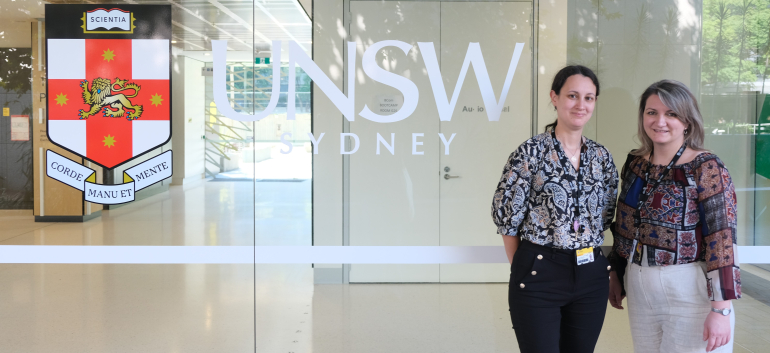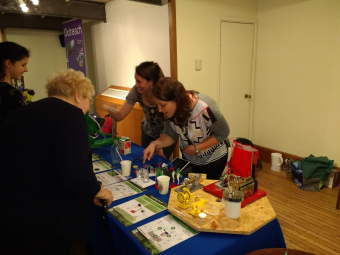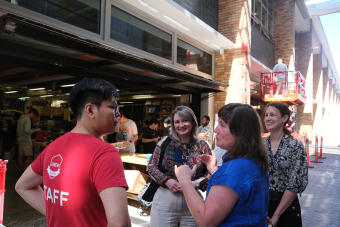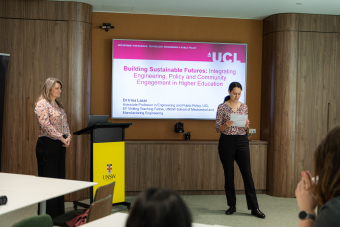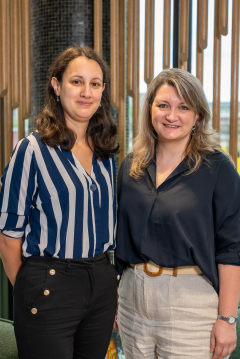Published 9 September 2024
This is the story of UCL's Associate Professor Irina Lazar and UNSW's Dr Irène Renaud-Assemat—two educators whose journey from being colleagues to leading international educational initiatives exemplifies the power of collaboration and shared passion in transforming engineering education.
Bound by names that signify "peace" in ancient Greek and translated into their respective mother tongues—Romanian and French—Irina and Irène developed a friendship rooted in their shared passion for engineering and a desire to shape education through community-centric approaches.
Early encounters
Their friendship began in 2014 at the University of Bristol in the UK, where Irina and Irène, both Education Focussed (EF) Lecturers, first crossed paths. Their formal introduction came two years later when they shared an office space. It laid the foundation of a partnership that was fuelled by a mutual desire to support and innovate within engineering education. As both were immigrants adjusting to life in the UK, they found common ground in their early-career struggles and shared goals.
The decision to collaborate came naturally and has sparked informal discussions around enhancing writing skills among first-year engineering students. Their engagement extended beyond the university, focusing on outreach and widening participation efforts. The work experience initiative they developed at the University of Bristol stands out among their many joint projects. Designed to immerse high school students in the world of engineering research, this initiative provided a week-long campus experience, offering insights into the life of a researcher. Feedback from students and parents alike attested to the initiative's success, highlighting the impact of their joint efforts.
Apart from being in the same discipline, their commitment to the EF career pathway launched a profound professional relationship. Together, they advocated for the EF role within their Faculty and underscored the need for authentic student learning experiences.
Paths diverge and reconnect
Amid the Covid-19 pandemic, their careers took them in different directions—Irène to UNSW in Australia in 2020, and Irina to UCL in 2022. Yet, the bond forged in Bristol proved stronger than distance.
In September 2022, Irina and Irène reunited at the European Society for Engineering Education (SEFI) Conference in Barcelona—the same year when UNSW’s EF Visiting Teaching Fellowships (VTF) program was launched. As fate would have it, the opportunity for such a collaboration presented itself once again. The decision to apply for the fellowship, with Irène as the host, was born out of a mutual recognition of the urgent need to integrate engineering, policy, and community engagement in higher education.
Both Irina and Irène envisioned a future where engineers were not just builders and innovators but also stewards of sustainable futures and active participants in their communities.
Fast forward to 2024, Irina and Irène successfully organised a series of EF VTF events that covered a breadth of topics, from community-based placements and transdisciplinary education to inclusivity and sustainability in the engineering curriculum.
Future aspirations and mutual influence
Looking ahead, Irina and Irène are excited about potential projects, particularly those embedding policy content into engineering education and exploring reflective practice in project-based courses.
Their story is not just one of professional success but also personal growth, challenging each other to step out of their comfort zones and pursue new ideas with energy and enthusiasm. Trust, friendship, and a willingness to explore future avenues of collaboration underpin their partnership, offering valuable lessons for building successful collaborations in universities and beyond.
As they reflect on their journey and look to the future, Irina and Irène's collaboration exemplifies how shared passion and mutual support can drive innovation and impact engineering education. Their story serves as an inspiration that transcend geographical boundaries and foster meaningful change.
This article is written by Apple Davalos.
